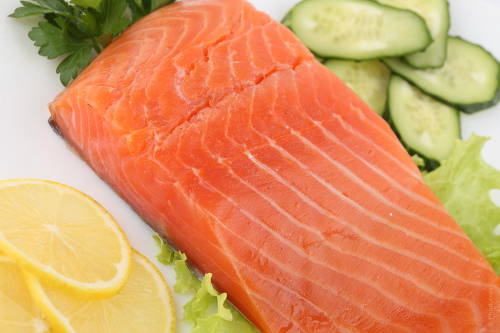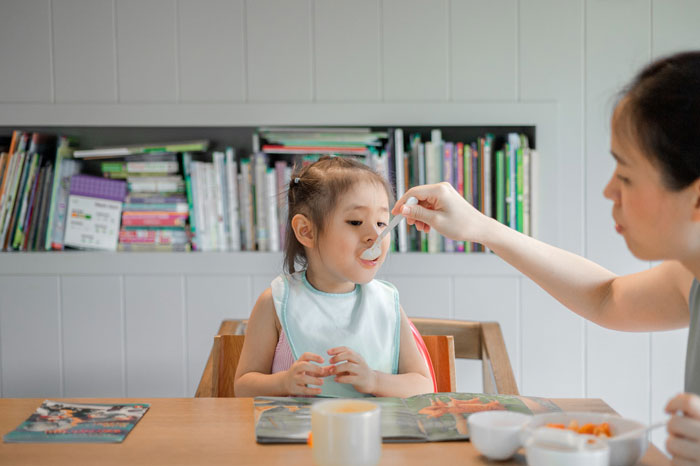What Makes Japanese Kids the Healthiest?
While we all want our children to enjoy a life as long and healthy as it is possible, there is no guarantee that it can actually happen. But it seems that over there in Japan, they possess some secret how to protect their young. A study in The Lancet avers that in today’s world Japanese kids can boast the highest lifespan.
The study reveals that children in Japan can easily expect to live to be 80, and up to 70 and over excluding major health issues and/or disabilities. Those are amazing figures, especially if compared to the U.S. ones – we can expect healthy life until 65 years old and total expectancy up to 75. That’s not even a top 10 result.
While the world keep laboring under the weight of adolescent obesity and early cases of diabetes, children in Japan show relatively low obesity level – what’s more, this phenomenon has been manifest since old times and doesn’t show any increase. How can they maintain this propitious level?
Their signature eating style
Eating habits in Japan are very healthy being extremely nutricient and filling at the same time. It’s great because once you have satiated yourself on nice salubrious food, you are far less likely to want to snack on trash food later.
If you have a mind to emulate the Japanese, there’s no need for you to stock on sushi, seafood and tofu to the exclusion of everything else. Begin to think healthy, and that will solve the issue. Forget about processed stuff loaded with sugar and salt; reach out for vegetables, fruits, all kinds of beans, in short, plant-based foods as well as whole grain food and omega 3-rich kinds of fish.
Eating like this, you intake fewer calories without losing in nutrition and amount of food consumed. As you take a lower ratio of calories per mouthful, the risk of getting overweight will grow lower, thereby warding off obesity-related illnesses and prolonging lifespan.
Another significant difference of Japanese eating is that their main foundation is not bread or pasta, but rice. They mostly go for short-grain brown rice or partially milled rice (which is, by the way, very tasty). Cooked rice is rich in water and therefore filling, while not as rich in calories than bread.
So when you begin to stuff your stomach with rice making it feel good without a great increase in calories, you automatically cut down on unhealthy goodies as your wish to have a snack in-between meals subsides.
Inspire your kid(s) to try new dishes
Children are both fastidious and curious about their food (just like about anything else!). Their preferences are apt to be changing yet. Still it’s better to accustom the child to having a choice of dishes at an early age, so that he or she could become receptive to the idea of tasting various kinds of food.
All experts are unanimous in that the more varied a child’s table is, the better his or her health is likely to be. As emerges from studies, children limited to a small choice of dishes don’t get that many nutritious substances and can be more susceptible to intolerances and manifest allergic reactions.
You can easily introduce new dishes to children if you don’t exert obvious pressure and play it as fun. Think of one new dish in about a week, and don’t be judgmental. If the child is old enough, you can look for interesting dishes on the Internet together and choose the one that appeals to you both.
Enjoy snacking judiciously with moderation
When your kid wants a snack or a goodie, why not let them have it – provided they don’t have too much and don’t do it too often. Westerners are accustomed to snacking much more than Japanese, and it goes for kids as well.
Eating doesn’t have to be a forceful affair. When eating, assume a relaxed disposition, see to it that your kid is also at ease, munching away happily, and you talk about how good the food is.
Arrange for having meals together. You may be very busy, but it’s still worth your while to allocate a special time when you can share a meal with your child(ren) a soften as you can. Make it a joyful event, free of stressful conversations, painful issues and criticism. Let eating and merry mood go hand in hand.
Pick up rebalancing hints from the Japanese
The movie Super Size Me about growing obesity among American population showed that in the last 20 years serving sizes have also been growing – while in Japan they use smaller plates and naturally have smaller size portions.
When children are left to their own devices, they rarely ladle large portions for themselves, and if they get a smaller plate, they are even less likely to pile up a lot of food.
Try some bossing around when it comes to eating
Those parents who don’t feel they must be authoritarian towards their children will be interested to know that Japanese parents believe in taking a strong stand with their children in spheres related to eating habits and healthy lifestyle.
Being authoritative with your kids you set rules and tendencies which the kids will be inheriting for their own, so this particular kind of discipline is strategic and, basically, nurtutring. Asseriveness is there, but you don’t intrude nor punish, so it’s a supportive attitude after all.
The whole point of the authoritative discipline is have a set of rational rules that are enforced on a regular basis thereby allowing for establishing control which can be exercised at a contingency. If reasonably applied, it can create an environment where your children will be growing adopting the habits and tastes you want them to develop towards a satisfying and healthy life that could be longer than you can expect going by the average lifespan in your country.
See that your kid moves a lot
Japanese children are physically very active, and from a young age, too: more than 98% of them get to school and back home on foot or riding a bicycle, thus covering most of the daily 60-minute period allotted to physical exercises and practices.
This forms what is quite a national habit – the average Japanese never minds walking and habitually sets off to his destination on foot instead of jumping into a car.
According to the information courtesy of the World Health Organization, regular physical activity prevents kids from gaining excessive weight; as their muscles and bones grow stronger, their bodies gain in health, their minds become better at concentration and memorizing, and their cardiovascular system reaps the benefits, too. In addition, a healthy child is much better equipped to cope with emotional strains, anxiety, fear and depressive bouts.
Although you may not consider sending your kids off to school on foot, cotton on to the main point: physical activity must become a daily habit with your progeny. Look around for alternative occupations: volleyball games, evening walks, morning exercises – the earlier you begin to make a habit of all these, the better chance of long healthy life your children stand.






